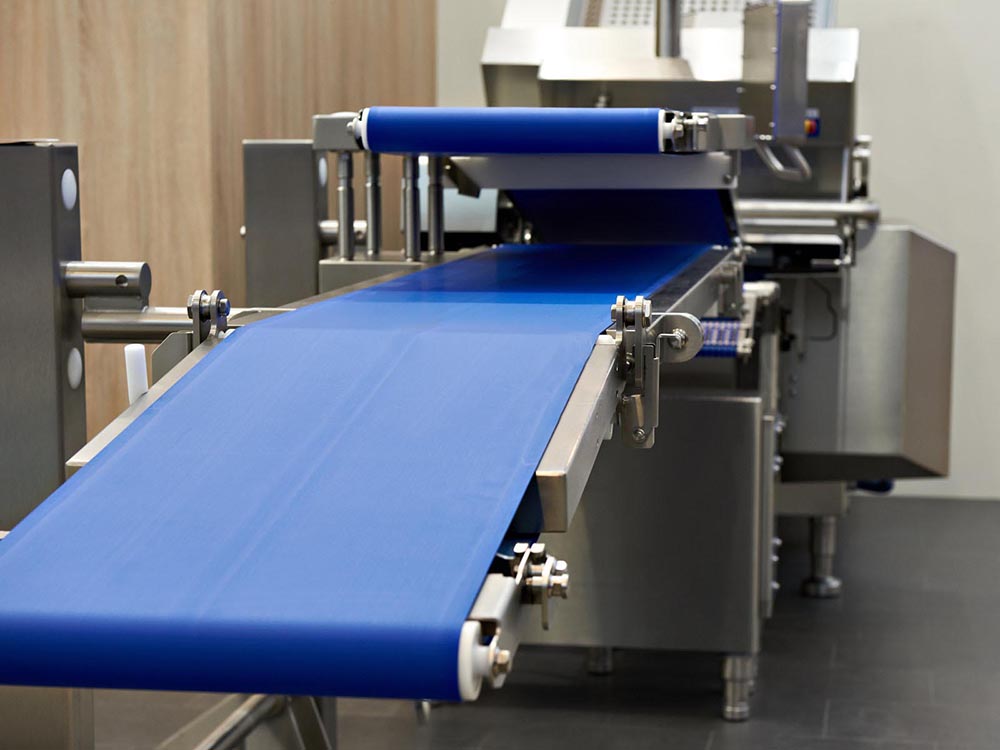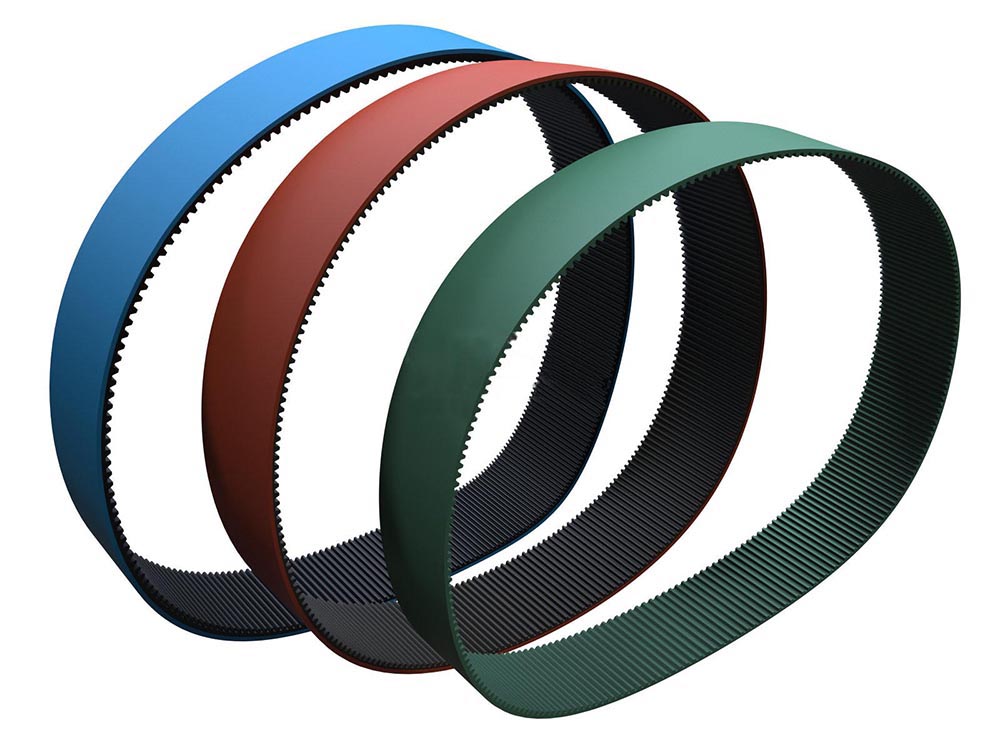PVC (Polyvinyl Chloride) and PU (Polyurethane) conveyor belts are both popular choices for material transportation but differ in several aspects:
Material Composition:
PVC Conveyor Belts: Made from synthetic materials, PVC belts typically consist of layers of polyester or nylon fabric with PVC top and bottom covers. These belts are known for their affordability, flexibility, and resistance to oil and chemicals.
PU Conveyor Belts: PU belts are constructed using polyurethane materials. They often contain polyester or nylon fabric, offering enhanced resistance to abrasion, greater flexibility, and improved resistance to fats, oils, and solvents compared to PVC belts.
Durability and Wear Resistance:
PVC Conveyor Belts: These belts offer good durability and wear resistance, making them suitable for various industries. However, they may not withstand heavy loads or harsh conditions as well as PU belts.
PU Conveyor Belts: PU belts are renowned for their exceptional wear resistance, making them ideal for applications with heavy loads, high speeds, or harsh operating environments. They resist abrasion and tearing better than PVC belts.
Hygiene and Chemical Resistance:
PVC Conveyor Belts: PVC belts are resistant to oil, grease, and chemicals, making them suitable for industries such as food processing, pharmaceuticals, and packaging.
PU Conveyor Belts: PU belts excel in resisting fats, oils, and solvents, making them highly suitable for applications involving contact with these substances, commonly found in food and beverage industries.
Operating Temperatures:
PVC Conveyor Belts: PVC belts perform well within a moderate temperature range but might not be suitable for extreme temperature conditions.
PU Conveyor Belts: PU belts can withstand a broader temperature range, including both high and low temperatures, making them more versatile in various operating environments.
Application Specifics:
PVC Conveyor Belts: Commonly used in industries such as manufacturing, logistics, and general material handling where cost-effectiveness and moderate performance are crucial.
PU Conveyor Belts: Ideal for industries with stringent requirements for durability, abrasion resistance, and hygiene, such as food processing, pharmaceuticals, and heavy industries like mining.
Choosing between PVC and PU conveyor belts often depends on specific application requirements, budget constraints, and environmental conditions in which the belts will operate.
Post time: Dec-11-2023



